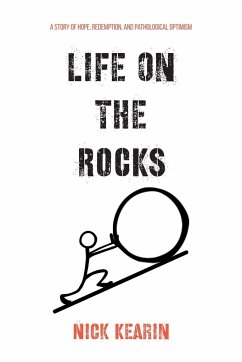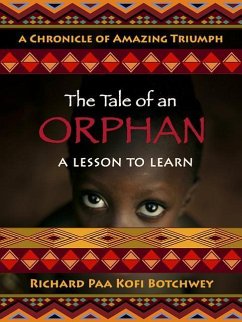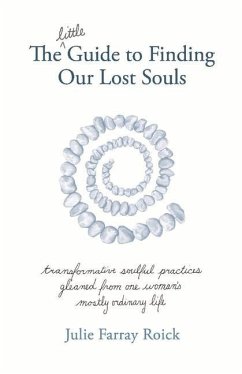
Fractions of the Soul
A Tale of Rocks and Blades

PAYBACK Punkte
8 °P sammeln!
In Fractions of the Soul: A Tale of Rocks and Blades, Anthony Adoré offers a uniquely intensive and provocative examination of the intricate, often fraught, dynamics between men and women. The book opens on a familiar premise--that even with the right intentions, relationships can falter due to overlooked nuances or flawed communication . From there, Adoré casts the reader and himself as dispassionate "observers," a type of scientist tasked with understanding the human heart not through introspection alone, but by collecting "data points" and "breadcrumbs" from the observable world to revers...
In Fractions of the Soul: A Tale of Rocks and Blades, Anthony Adoré offers a uniquely intensive and provocative examination of the intricate, often fraught, dynamics between men and women. The book opens on a familiar premise--that even with the right intentions, relationships can falter due to overlooked nuances or flawed communication . From there, Adoré casts the reader and himself as dispassionate "observers," a type of scientist tasked with understanding the human heart not through introspection alone, but by collecting "data points" and "breadcrumbs" from the observable world to reverse-engineer the frameworks that dictate behavior. This investigation reveals that the human heart is never a blank slate but is instead "legion--many within one," haunted by the ghosts of past and present relationships that influence every new encounter. The author introduces a compelling and challenging metaphor, categorizing people into "blades" who require shaping and "whetstones" who provide the grinding necessary for spiritual and intellectual sharpening. This process is depicted as inherently painful but essential for growth. Adoré delves into specific, unconventional concepts, such as his theory that women often deploy psychological "replicants" to manage multiple "fri-lation-ships" simultaneously, allowing them to entertain opposing emotions and intimacies without internal contradiction. At its core, the book builds a grand narrative from a theological interpretation of Genesis, arguing that modern relationships are a reenactment of Adam's primordial loneliness and Eve's inherent self-love. Adoré contends that true, authentic connection is only possible when both partners cease to make the other their ultimate focus. Instead, using the model of a triangle, he argues that the man (A) and woman (E) must each independently pursue a higher purpose ("G"--be it God or Reason), and only in their mutual ascent toward "G" will they grow authentically closer to one another. Adoré writes with a direct, confessional voice, positioning himself as a "whetstone" and laying his own soul bare as a subject for the reader's analysis. He doesn't shy away from expressing his own weariness with the repetitive, instinctual patterns he observes in human mating rituals. Ultimately, Fractions of the Soul is more than an analysis; it is a summons. It challenges the reader to move beyond the comfort of the familiar, to confront the reality of finitude as the primary motivator for change, and to undertake the difficult work of building a life founded on conscious choice rather than biological impulse.













